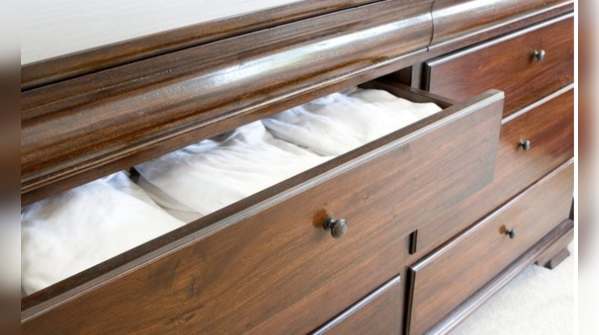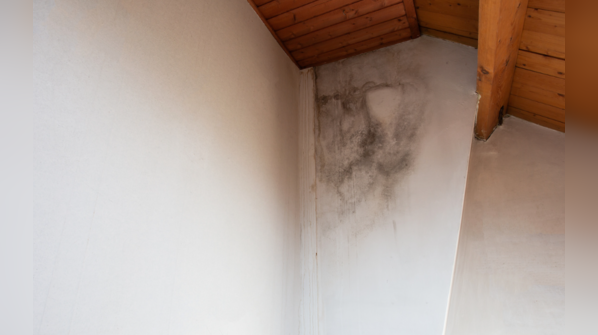The bedroom is often considered a sanctuary, a place for rest and rejuvenation. However, several hidden dangers within this space can significantly impact your health and well-being. It's crucial to identify and address these risks to ensure a safe and healthy sleep environment.

While your mattress might appear comfortable, its age can belie a multitude of health hazards. Mattresses older than 7-8 years accumulate sweat, dead skin cells, dust mites, mold, and bacteria. Regular vacuuming offers insufficient cleaning. This build-up creates a toxic environment that you inhale nightly.
Older adults are particularly vulnerable, as their immune systems are less robust. Studies indicate that aging mattresses release harmful chemicals and allergens, potentially causing skin rashes, respiratory issues, and aggravated allergies.
Solutions:

Pillows and bedding serve as ideal habitats for dust mites, microscopic creatures that thrive on dead skin. These mites are potent triggers for allergies, asthma, and skin irritation. Moreover, they can induce respiratory problems that may escalate into more serious lung conditions. Older pillows, in particular, harbor a concentrated accumulation of dust mites, sweat, and allergens.
Solutions:

Many individuals rely on air fresheners to maintain a pleasant scent in their bedrooms. However, these products frequently contain harmful chemicals known as phthalates, which can disrupt hormone balance and potentially cause reproductive harm. Regular use of synthetic air fresheners can degrade indoor air quality and silently compromise your health, often triggering migraines and allergies.
Solutions:

Proximity to artificial light sources, especially blue light emitted from digital clocks, smartphones, and LED bulbs, can disrupt your natural sleep cycle. This is because blue light suppresses melatonin production, a hormone crucial for inducing sleep. This effect is particularly pronounced in older adults, who exhibit heightened sensitivity to light at night. The resulting sleep deprivation elevates the risk of heart disease, diabetes, and certain types of cancer.
Solutions:

Mold thrives in damp environments and can remain undetected until it triggers health problems. Mold spores circulating in the bedroom air can initiate asthma attacks, allergies, and respiratory infections. For seniors and individuals with compromised immune systems, mold exposure can be potentially fatal. Moreover, mold exacerbates skin conditions and can induce systemic inflammation affecting joints and the heart. Mold infestations are commonly found in homes with inadequate natural light.
Solutions:
Newer articles
Older articles
 Greg Chappell Hails Rishabh Pant's Revolutionary Impact on Cricket
Greg Chappell Hails Rishabh Pant's Revolutionary Impact on Cricket
 Smith Targets Second Test Return After Baseball Cage Recovery in New York
Smith Targets Second Test Return After Baseball Cage Recovery in New York
 Rishabh Pant's Somersault Celebration Deemed 'Unnecessary' by Doctor Who Oversaw His Recovery From Near-Fatal Crash
Rishabh Pant's Somersault Celebration Deemed 'Unnecessary' by Doctor Who Oversaw His Recovery From Near-Fatal Crash
 Gavaskar Calls for Kuldeep Yadav's Inclusion in 2nd Test Amid Bumrah Fitness Concerns
Gavaskar Calls for Kuldeep Yadav's Inclusion in 2nd Test Amid Bumrah Fitness Concerns
 Rishabh Pant's Composed Reply Dismisses Harry Brook's Sledge in Edgbaston Test: Key Partnership Boosts India
Rishabh Pant's Composed Reply Dismisses Harry Brook's Sledge in Edgbaston Test: Key Partnership Boosts India
 Samsung Unveils Galaxy A35 5G and A55 5G Prices, Availability
Samsung Unveils Galaxy A35 5G and A55 5G Prices, Availability
 Harshit Rana Released: Indian Pacer Exits Squad Before Second England Test in Birmingham
Harshit Rana Released: Indian Pacer Exits Squad Before Second England Test in Birmingham
 Bangladesh Test Captain Najmul Hossain Resigns After Sri Lanka Defeat
Bangladesh Test Captain Najmul Hossain Resigns After Sri Lanka Defeat
 Mirabai Chanu: Weightlifting Demands Constant Mental Focus, Even During Family Time
Mirabai Chanu: Weightlifting Demands Constant Mental Focus, Even During Family Time
 'Manjummel Boys' Star Soubin Shahir Denies Arrest in Film Finance Dispute: Claims of Misleading Accounting Spark Police Probe
'Manjummel Boys' Star Soubin Shahir Denies Arrest in Film Finance Dispute: Claims of Misleading Accounting Spark Police Probe